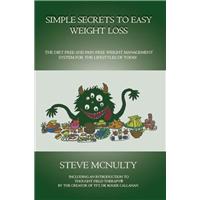
Rotterdam: TV violence triggers an increase in hunger, according to new research.
According to Dirk Smeesters, Associate Professor of Marketing at the Rotterdam School of Management, Erasmus University, people who are thinking about their own deaths want to consume more.
In a paper published in the Journal of Consumer Research, The Sweet Escape: Effects of Mortality Salience on Consumption Quantities for High- and Low-Self-Esteem Consumers, Dirk Smeesters and co-author Naomi Mandel (Arizona State University) reveal that consumers, especially those with a faced with images of death during the news or their favorite crime-scene investigation shows.
Smeesters and Mandel conducted experiments in Europe and the United States on 746 subjects who wrote either about their own death or a visit to the dentist (the control group). The findings revealed that consumers with low self-esteem writing about their death ate more cookies and listed more items on a hypothetical shopping list compared to those who wrote about the dentist. Similar effects were obtained by subliminally presenting the word death to consumers and exposing them to death-related news.
Smeesters and Mandel explain this effect using a theory called escape from self-awareness. When people are reminded of their inevitable mortality, they may start to feel uncomfortable about what they have done with their lives and whether they have made a significant mark on the universe. This is a state called heightened self-awareness. One way to deal with such an uncomfortable state is to escape from it, by either overeating or overspending.
Follow-up research found that death-related news can not only increase consumers consumption behavior, but can also affect their preferences for domestic and foreign brands. More specifically, consumers who were exposed to death-related news (e.g. a news report about a fatal car crash) had more positive preferences for domestic brands, but more negative preferences for foreign brands compared to consumers not exposed to such news.
These effects were obtained because thinking about death made consumers more patriotic. These studies clearly demonstrated the potential negative effects of advertising foreign brands shortly after the broadcast of death-related programs on television.
About Rotterdam School of Management, Erasmus University
RSM is an internationally top-ranked business school renowned for its ground-breaking research in sustainable business practice and for the development of leaders in global business. Offering an array of bachelor, master, doctoral, MBA and executive education programmes, RSM is consistently ranked amongst the top 10 business schools in Europe. < a href="http://www.rsm.nl">www.rsm.nl

